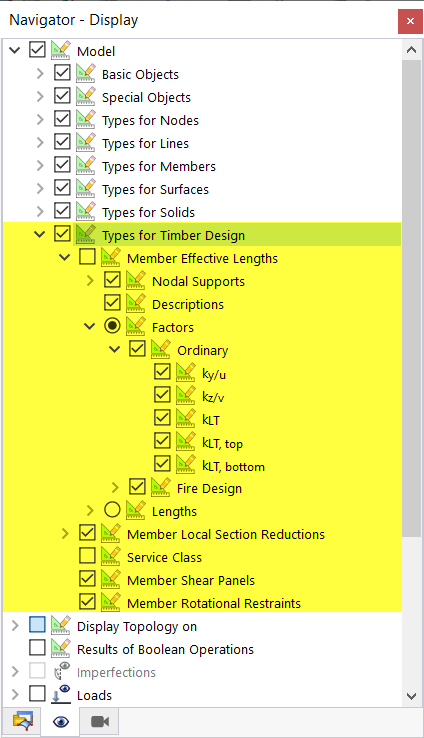The essential boundary conditions for design checks are defined by assigning a type of timber design to an object to be designed. The assignment is done either by selecting members or member sets in the individual dialog boxes of the types, using the "Types for Timber Design" input tables, or by selecting a type for the timber design in the Design Properties of the object.
The design properties in the objects are accordingly available for the activated design add-ons, depending on the material. Members can be designed either as a member or via the superordinate member sets (see Chapter Member Sets). It is also possible to assign design properties via representatives; this is described in Chapter Representatives.
Depending on the selected design standard, various Types for Timber Design are available. The design standard is selected in the Base Data of the model; see also Standards I. The description of the individual types can be found in the corresponding chapters of this manual.
Select an existing type of the timber design from the list or use the
![]() button to create a new type. The
button to create a new type. The
![]() button allows you to graphically select another object from which the respective type of timber design will be imported. Click the
button allows you to graphically select another object from which the respective type of timber design will be imported. Click the
![]() button to open the edit menu of the selected type.
button to open the edit menu of the selected type.
All types for timber design can be displayed graphically in the work window. You can find the corresponding display options under the "Types for Timber Design" menu item in the Navigator – Display. Thus, it is possible to easily check the correct assignment and to obtain clear documentation via the Graphic Printout.
The selected types for the timber design are also displayed in the lower part of the edit dialog box of a member or a member set.

